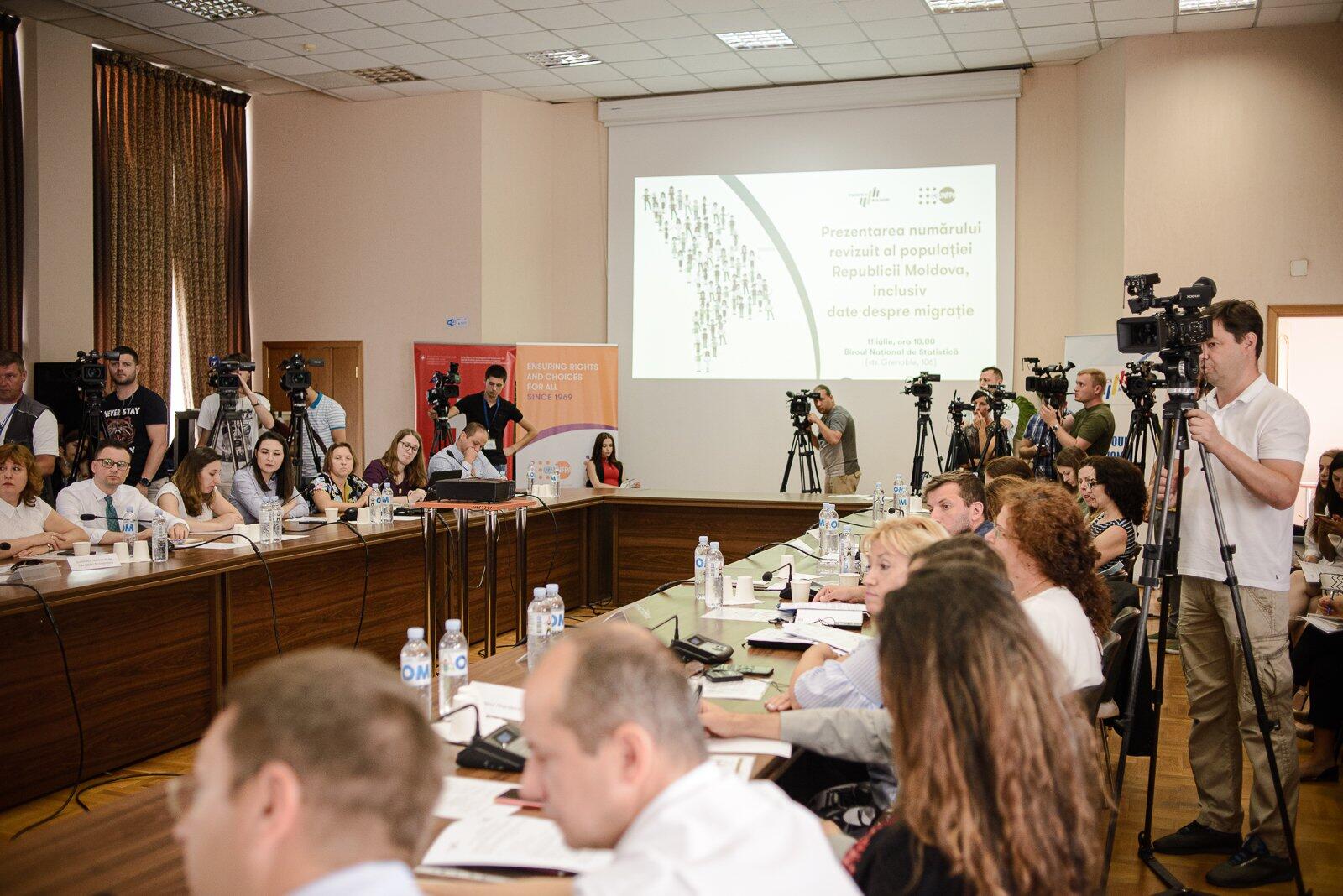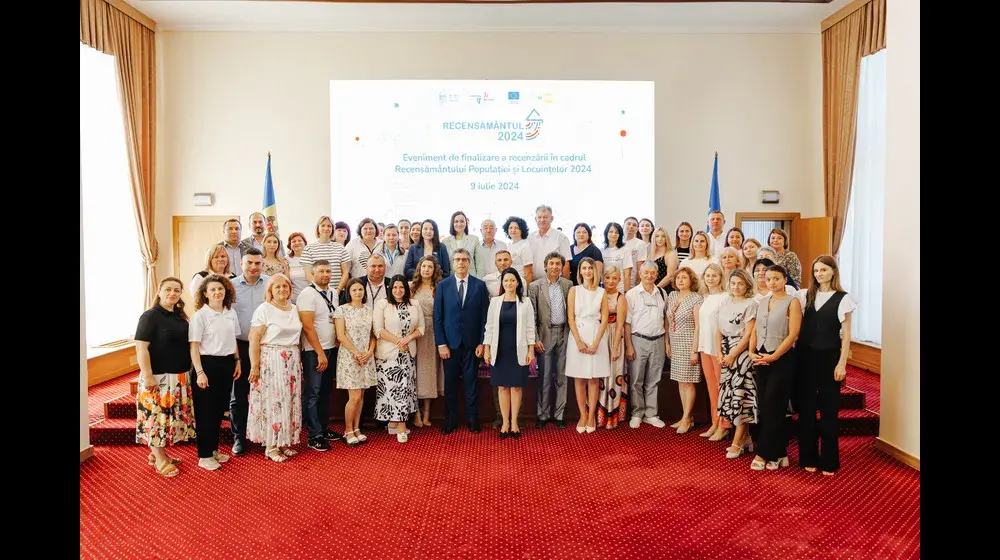Chisinau, 11 July - According to the preliminary data of the National Bureau of Statistics (NBS), 2.68 million people with habitual residence lived in the Republic of Moldova at the beginning of 2019. The country's inhabitants have been extensively involved in international migration in recent years. Thus, around 160,000 people emigrated from the country in 2017, and 110,000 immigrated to the country, most of them being returned migrants.
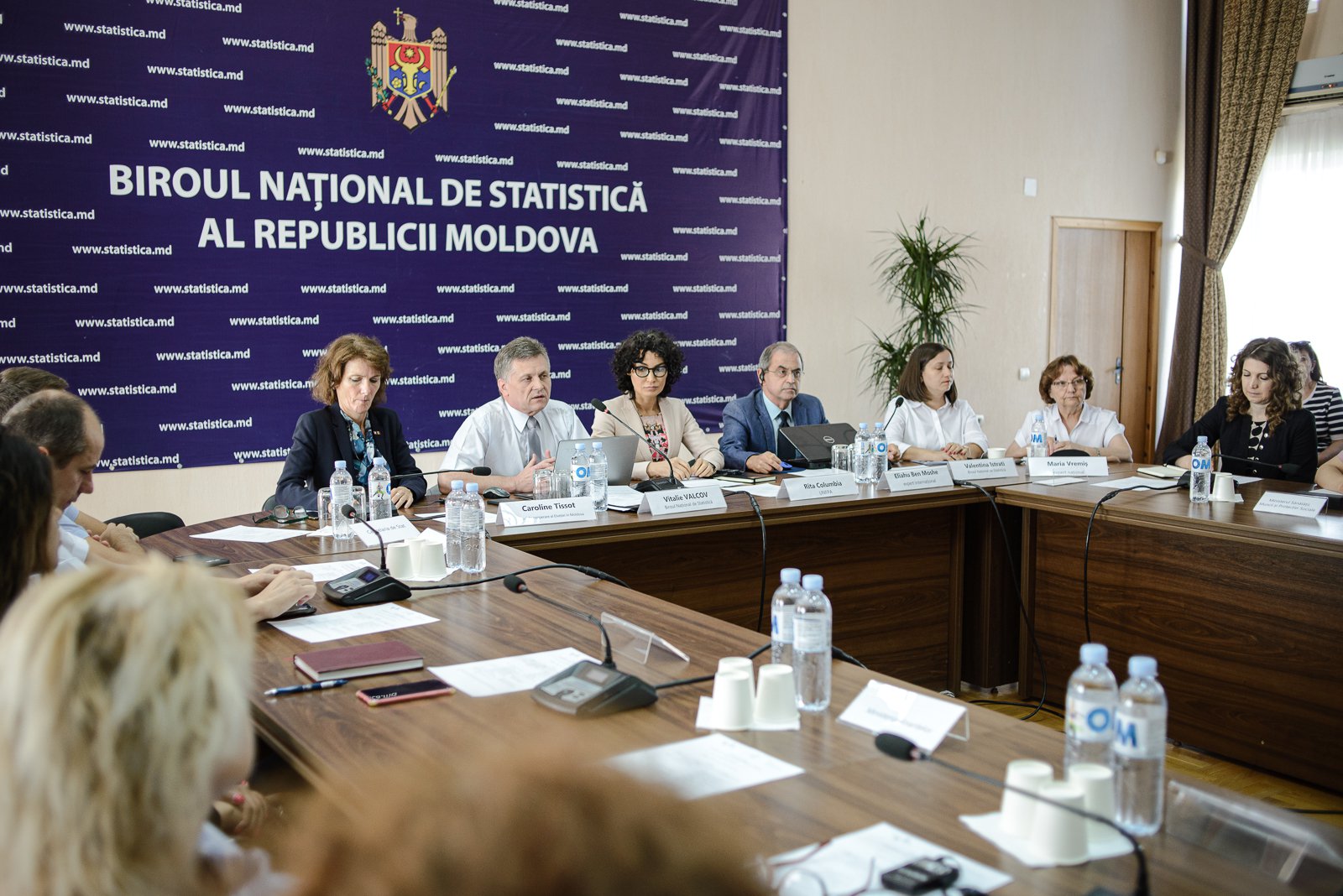
These are just a few of the results that have been made public on 11 July, on World Population Day, during the event of presentation of the revised number of population of the Republic of Moldova and the data on international migration for 2014-2018.
NBS recalculated the number of population for the last five years by applying the international definition of habitual residence and by using, for the first time, data on state border crossings by individuals provided by the General Inspectorate of Border Police.
For the first time in the practice of NBS, and of the country, the review of the number of population was possible due to statistical measurement of net migration by applying international standards in the statistics of migration (while the exclusion of temporary stays was the basic criterion). This will enable data users and the Government to better understand demographic changes, including the extent and evolution of the international migration for relevant policy making and monitoring.
In the opening speech, Vitalie Valcov, Director General of NBS, stated that “the review of the number of population was an important step in aligning the Republic of Moldova with the international standards and recommendations in the field of demographic statistics.”

In the opinion of the international expert, Eliahu Ben-Moshe, Doctor in statistical and demographic sciences, the results obtained following this activity are an enormous contribution to improving the National Statistical System in general and the quality and accuracy of NBS data in particular, which provides a more accurate picture of the demographic situation in the Republic of Moldova.
Rita Columbia, Representative of the United Nations Population Fund (UNFPA) in the Republic of Moldova, stated that “the availability of reliable data on population is essential to achieving the country's development goals and realizing the rights of all people. UNFPA supported the review of population to enable the Republic of Moldova to monitor the progress on Sustainable Development Goals and Cairo International Conference on Population and Development (ICPD) Action Program”.
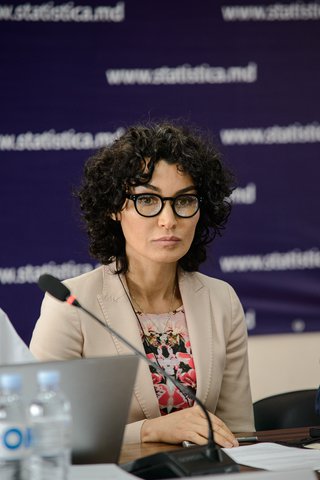
“Switzerland has supported the review of the number of population as we believe that public policy formulation and funding planning should be based on updated and accurate official data. For us, the development partners, these revised data mean technical and financial assistance programs that better meet the needs of the population of the Republic of Moldova”, added Caroline Tissot, Director of Swiss Cooperation Office in the Republic of Moldova.
During the event, NBS specialists presented the estimation methodology, but also the value of the main demographic statistical indicators for 2014-2018, such as: migration balance, life expectancy, fertility and mortality rates, age and gender structure and other indicators.
The next steps to be taken by the specialists of the National Bureau of Statistics will include the recalculation of other socio-economic indicators of national statistics, based on the revised number of the population. NBS will inform the data users beforehand of the deadlines for disseminating the recalculated indicators.
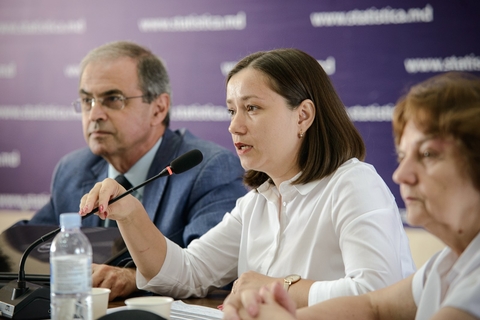
The event brought together representatives of line ministries, central public authorities, academia and associative sector, as well as the media in the Republic of Moldova.
The review and presentation event were carried out by the National Bureau of Statistics under the “Strengthening the National Statistical System” UN joint project with the support of UNFPA and SDC.

